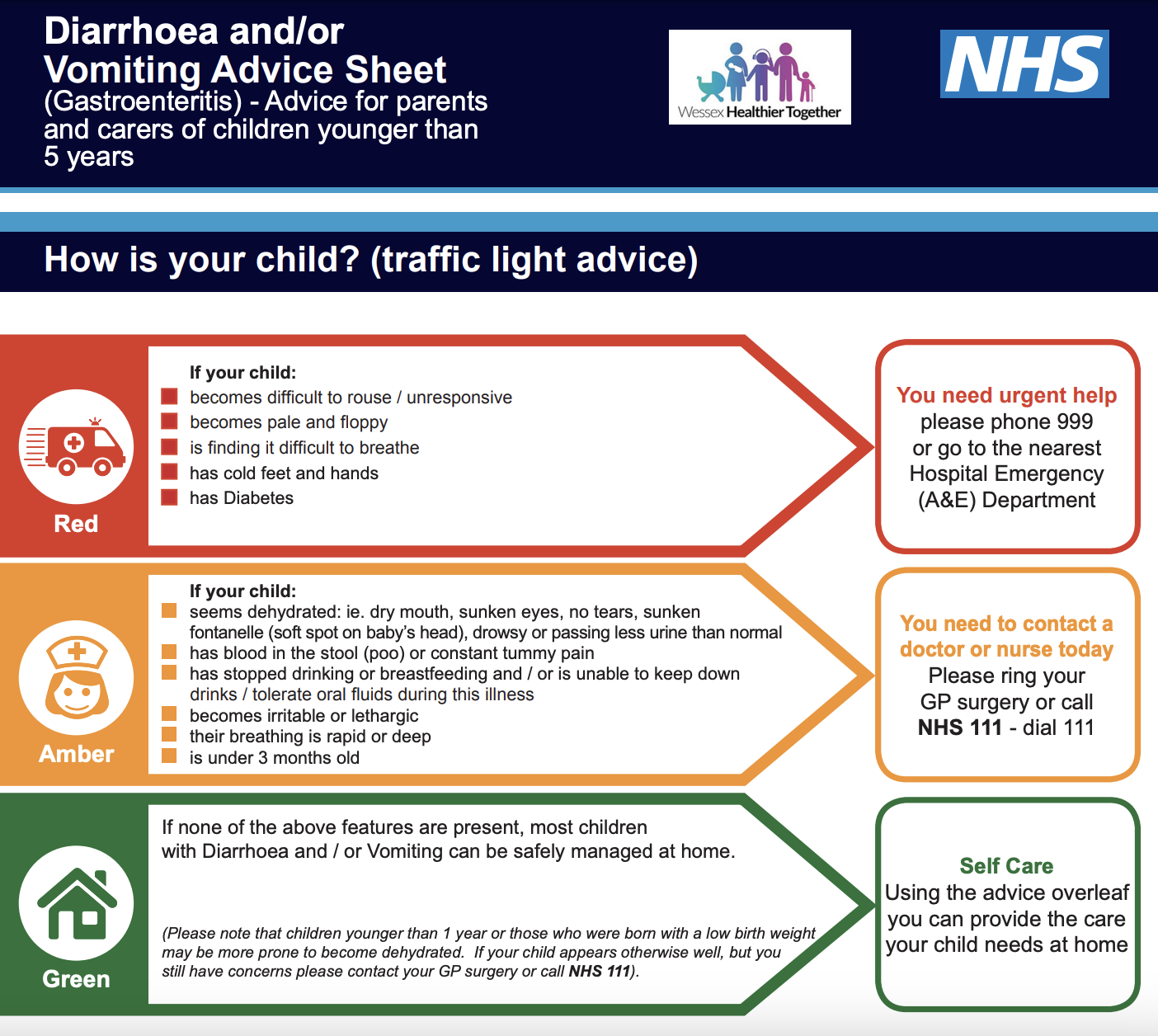Diarrhoea
Diarrhoea and vomiting are common in adults, children and babies
Often caused by a stomach bug and should settle within a few days
Important to encourage lots of fluids to avoid dehydration
Carry on breast or bottle feeding your baby, try smaller feeds more often
Give babies who are bottle feeding or on solids small sips of water between feeds
Paracetamol if in discomfort
Diarrhoea and vomiting can spread easily
Stay off school for at least 48 hours after diarrhoea and vomiting has settled
Wash hands with soap and water frequently
Wash any soiled clothing or bedding separately on a hot wash
Clean toilet seats/taps/surfaces every day
Do not share towels/flannels
Do not use a swimming pool until 2 weeks after symptoms stop
Oral rehydration sachets bought over the counter may be helpful
What do call for help?
You are worried about your baby under 12 months
Your child stops breast or bottle feeding
You have concerns about dehydration e.g. fewer wet nappies
Your child cannot keep any fluid down
You have noticed blood in the stool
Your child has had diarrhoea for more than 7 days or vomiting for more than 2 days as there may be another underlying cause
When to call for urgent help?
Your child is vomiting up blood
Colour of vomit is yellow/green
Might have swallowed something poisonous
Stiff neck and pain when looking at bright lights
Sudden severe headache or stomach ache
Fevers
Your child has had diarrhoea for more than 7 days or vomiting for more than 2 days as there may be another underlying cause
When to call for urgent help?
Your child is vomiting up blood
Colour of vomit is yellow/green
Might have swallowed something poisonous
Stiff neck and pain when looking at bright lights
Sudden severe headache or stomach ache
Fevers

